February 2018 National eResearch Newsletter
Welcome to the February AeRO eResearch Newsletter
Message from AeRO CEO.
“The NRDC Grand Challenge” – reducing complexity, improving ease of use, lowering entry barriers, and increasing adoption of digital data tools and techniques.
You are invited to the 2018 AeRO National Forum on March 14th in Canberra.
This 1-day event attracts representatives from institutions, NCRIS capabilities, discipline communities, research centres, funding bodies, government and other agencies.
We will discuss establishing cohesive, sustainable approaches to the development of digital data skills and integration of technology platforms featuring:
- Skills and culture
- Planning and evolution
- Investment and governance
Info and bookings at http://aero.edu.au/forum2018/.
We look forward to seeing you there!
Sam Moskwa, AeRO CEO.
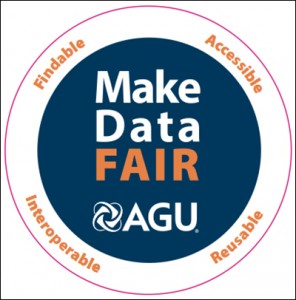 |
International Effort to Discover Educational Resources on FAIR
As part of the Enabling FAIR Data project, crowdsourcing events are being held to discover educational resources that are currently available to teach and learn about research data management (RDM) skills, methods, and practices. The first crowdsourcing event is scheduled for 12 noon-1:15 pm 22 February US EST. Call-in details are on http://www.esipfed.org/telecons under the “DMT Clearinghouse Crowdsource”. This first event will be searching for resources that enable researchers to make their data FAIR (Findable – Accessible – Interoperable – Reusable). Note that the ANDS webinar series on the FAIR principles is already described on http://dmtclearinghouse.esipfed.org/node/9907 |
 |
TechTalk on Spacial Data Discovery and Interoperability, 2 March
The Monthly Tech Talk on 2 March, will be on the topic Spatial Data Discovery and Interoperability. Spatial Data, like many other forms of data, are becoming increasingly available to wider research, government, and business communities. Increased efforts are required to enable discovery of these resources by relevant audiences. They also provide opportunities for connecting datasets through common geographic location. Tech Talks are live-linked discussion events at various venues around Australia, followed by networking with refreshments. The March meeting page (https://www.meetup.com/monthlytechtalk/) will be updated soon, once speakers have confirmed. To register, go to https://spatialdata_techtalkau.eventbrite.com.au. |
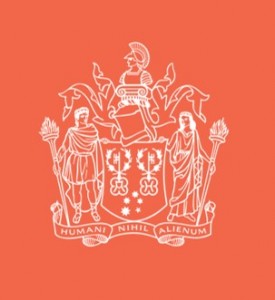 |
Humanities, Arts & Culture Data Summit in Canberra 14-15 March
The Australian Academy of the Humanities is hosting the Humanities, Arts & Culture Data Summit in Canberra 14-15 March at the National Film and Sound Archive (NFSA). The summit will bring together researchers, policy makers and institutions to discuss a national strategic approach to support future data-driven research and drive step-change in the way researchers can discover, access, mine and analyse Australia’s social and cultural data. To register, visit the Academy’s website at https://www.humanities.org.au/events/digital-humanities-summit/. Delegates attending the AeRO Forum are invited to share networking drinks with us from 5.00pm on 14 March in the NFSA courtyard. |
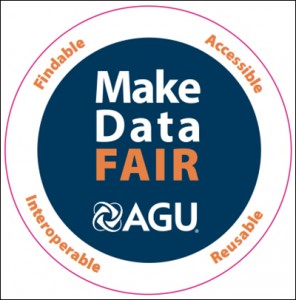 |
Gathering Information on FAIR Data Publishing
You are invited to participate in a survey about the increasingly open use of data in science. The information aggregated from the survey will directly support the “Enabling FAIR Data” project managed by a partnership that includes the American Geophysical Union, the Earth Science Information Partners (ESIP) and the Research Data Alliance (RDA), and has support from others including Nature, Science, AuScope, NCI, ANDS, and the Center for Open Science. Participation in the survey is voluntary and responses will not be individually identified. Participate in the survey at the following link: http://www.surveygizmo.com/s3/3963928/FAIR-Data-Survey-2017-consent For more information contact Lesley Wyborn (lesley.wyborn@anu.edu.au). |
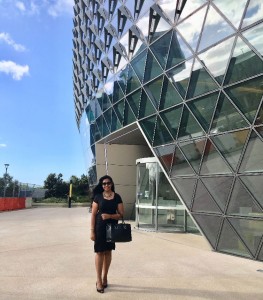 |
Expertise Shared across Australian Networks Assists International Research Collaboration
Through connections made across the EMBL Australia Bioinformatics Resource network, University of Melbourne MSc (Bioinformatics) student Priyanka Pillai spent time last summer with Assoc Prof David Lynn, EMBL Australia Group Leader in Biomedical Informatics and Immunology at the South Australian Health and Medical Research Institute and Flinders University. Priyanka developed a web application tool for the PRIMESDB portal http://primesdb.eu/, as part of a 13-partner Collaborative European FP7 Health project, enabling users to interactively visualise 93 PRIMES EGFR network bait proteins and their interactions. The network delivers collective outcomes for the Australian research community; see https://www.embl-abr.org.au/priyanka/. |
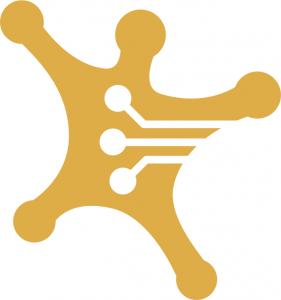 |
Alveo Virtual Laboratory takes Contributions
The Alveo Virtual Laboratory (http://alveo.edu.au/) is a platform built to support research in Human Communicaton. It provides a data repository for collections of audio, video and text and an API to allow tools to be built to access the data. A new feature recently introduced in the Alveo system allows users to upload files derived from existing resources and have them associated with the original data they were derived from. Researchers create a new Annotation Contribution in the Alveo system (at http://alveo.edu.au/help/adding-data-to-alveo/contributions/), so that this derived data can be referenced in papers and made accessible for future researchers. |
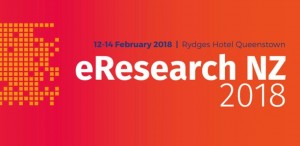 |
Key Themes & Recap of eResearch NZ 2018
The value of software tools, computing infrastructure, and skills training as vital supports for research today was a key message highlighted at eResearch NZ 2018. Hosted in Queenstown Feb 12-14 by New Zealand eScience Infrastructure (NeSI) and REANNZ, the event drew speakers and attendees from across New Zealand, Australia, South Korea, and North America, and focused on the opportunities and challenges of achieving eResearch impact, sustainability and excellence. Read more at https://www.nesi.org.nz/news/2018/02/key-themes-recap-eresearch-nz-2018. |
 |
AARNet Networkshop 2018: 28-29 June
Networkshop, a two-day national forum hosted by AARNet for technologists working on networking and/or networked technologies at AARNet-connected universities and research institutions, will be held again this year, on 28-29 June in Melbourne. Planning has started. More details coming soon. Save the dates! |
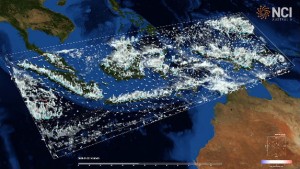 |
NCI Video of Weather Patterns over Indonesia
A collaboration between Dr Claire Vincent from the ARC Centre of Excellence in Climate System Science, and NCI’s VizLab visualisation team, has produced a scientifically accurate video example of the weather patterns formed by the Madden-Julian Oscillation taking place over the Indonesian Archipelago. Click here to watch the video and read about the research: http://nci.org.au/research/madden-julian-oscillation-maritime-continent/. |
 |
Australian ORCID Consortium Internationally Recognised for Inspired Community Engagement
In January, the ORCID Consortium run by the Australian Access Federation (AAF) was awarded the ORCID Consortia award for inspired engagement and community building. The AAF and governance groups have been working tirelessly to engage stakeholders and build national ORCID awareness over the last few years. This work has included the development of a range of high-quality communications materials, support and technical resources for members (see https://aaf.edu.au/orcid/resources.html). View the ORCID blog post (https://orcid.org/blog/2018/01/31/announcing-winners-first-orcid-consortia-awards?ref=email) about the consortia awards or contact orcid@aaf.edu.au to find out more about Australia’s national ORCID community. |
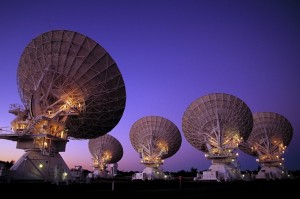 |
AARNet Supports New Technology to Synchronise Radio Telescopes
Australian researchers have used the AARNet network to synchronize two radio telescopes 100 kilometres apart, replacing the need for atomic clocks. The new technology could be particularly useful for the Square Kilometre Array. The results have been published in Optica, the Optical Society journal (https://www.osapublishing.org/optica/home.cfm). See the full story at https://news.aarnet.edu.au/new-technology-to-synchronise-radio-telescopes/. |
Contributions
This newsletter is based on contributions provided by members of the eResearch community, and draws on news articles and newsletters published across the sector. The Newsletter is published around the 16th of each month.
Please send any contributions (max. 100 words, plus a link and image) or pointers to any other relevant articles or newsletters to editor@aero.edu.au
Archives of these Newsletters are held at http://aero.edu.au/newsletters/.
Click HERE to add yourself to the eResearch Mailing List.
Thanks,
—AeRO Newsletter Editor

